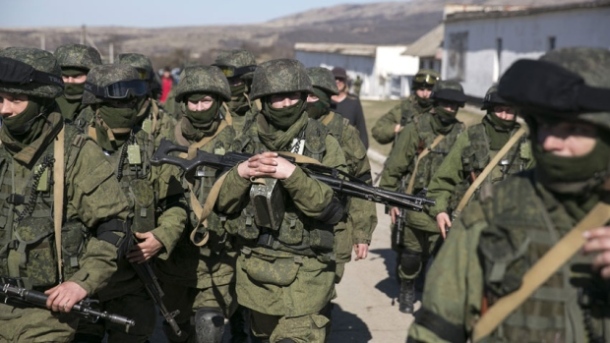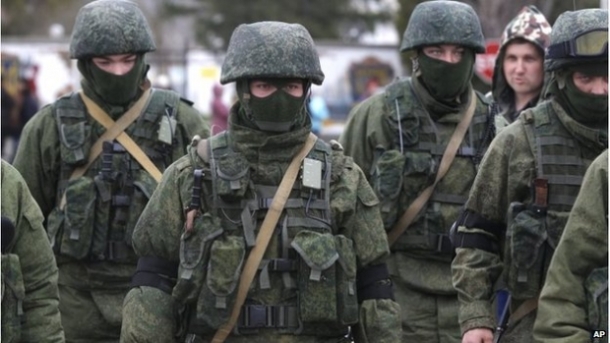Yahoo! Finance has an article asking whether parents owe their children a college education. No doubt the article was inspired by the case of eighteen year-old Rachel Canning who sued who parents for financial support and future college tuition after she stormed out after a tiff with her mother. It’s one of those cases that’s impossible to ignore; a judicial equivalent of watching a train wreck where we know the inevitable, cringe-worthy result, but we also find ourselves unable to avert our eyes.
I am going to be charitable and assume that the reason we feel compelled to watch doesn’t come from sadism, but rather from the fact that the case—like many other high profile cases—forces to the surface issues that have long been slumbering in the depths, waiting for the right time to surface and wreak vengeance on the world. This is a “Cthulhu Case,” and Rachel Canning inadvertently awoke it. This Cthulhu Case asks a question that has gnawed at anybody who has kids or is contemplating them: what are the moral duties owed between parent and child in post-industrial, post-Great Recession America?
Disappointingly, the Yahoo! article is really only concerned with the legal dimensions at play, and it reassures parents who are earnestly worried that their budding young Welfare Queen or King might sue them for unpaid college tuition. Generally, the answer is no–there is no du. There are some states that allow for kids to sue for college tuition under theories of equity. In most other contexts, kids can only sue their parents for tuition under some form of contract theory—either that there is a child support agreement that requires a parent to provide tuition for a minor after they reach majority, or that there is an argument that there is some justified reliance involved (e.g. parent promises child that they will pay for college, and the child reasonably and materially relies on that promise).
Sadly enough, these legal answers will not banish Cthulhu back to his underwater slumber in R’lyeh. Laws, by their nature, only tell us what society has agreed is wrong—not what is right. We’re still left with this question of what moral duty is owed between a parent and child in a dramatically changing nation and world. Sadly, I don’t have any real answers.
It does seem to me that the perception of parental duties and obligations has evolved over time. My grandparents were raised in a world where college was a privilege reserved for the famous and fortunate. That’s not to say that they didn’t realize the benefit for formal education—and indeed my grandparents all had minds that, even in their youth, would have been more than a match for the modern undergraduate. They also highly encouraged my parents to pursue formal education after high school. However, telling them that a parent has a moral obligation to provide a child with a college education would have sounded like arguing that parents have an obligation to provide their kids with a Rolls-Royce. It was a luxury—in a world where luxury was cannibalized by the ravages of the Great Depression. Thus, while my grandparents saw the value in education, they also thought that it was a value that should be financed solely by my parents.
And why not? In post-war, industrial America, a high school diploma was not exactly a one-way ticket to the soup kitchen. In 1962, only around 50% of students actually graduated high school, while the unemployment rate stood at 5.5%. If college was gravy, then parent funded college tuition was caviar.
Obviously, the world has changed a teensy bit. During the peak of the Great Recession in 2009, unemployment stood at nearly 10% despite the fact that 85% of students were completing high school, 29% had some college or gotten an associate’s degree, and 28% had a bachelor’s degree or more. Over 57% had at least set foot in some educational institution after high school.
Many will take these statistics and regurgitate them within a familiar argument: that the value of higher education is decreasing. Over the years I’ve heard various reasons for why the value of education is declining, ranging from general criticism of liberal arts education that leaves students enlightened, but not particularly skilled, to the idea that higher education has been “dumbed down.” While this is a separate debate, I am willing to entertain the notion that market factors and the “inflation” of college has depreciated the bachelor’s degree to being something less than the keys to Fort Knox.
However, even if a bachelor’s degree is no longer a license to print money, it is a valuable insurance policy. In 2012, after the unemployment rate had improved to 6.8%, unemployment for workers with a high school diploma hovered around 8.3%. For workers with bachelor’s degrees, the rate was 4.5%. That figure, of course, does not shed light on other relevant bits of data—like how long these college graduates will have to spend slaving away to pay off student loans or whether they are underemployed. However, I think it’s still probably fair to say that college—while not a stellar bargain—is much a better bargain than the alternatives, especially considering that the high school graduate averages about $652 per week compared to the college graduate’s $1,066 (yes, even with art history majors thrown into the mix).
While we can debate the practical utility of certain degrees or institutions, the market does clearly prefer college graduates over workers without college degrees. The issue, it seems to me, is that college is becoming less a vehicle of social mobility than, in many cases, an outright vocational requirement. The Great Recession accelerated this general trend, with more than 80% of jobs lost being held by individuals with high school diplomas or less. Considering that workers with only a high school diploma or less compose about 40-45% of the work force, that’s a truly staggering number.
What’s worse is that most of those jobs are gone. Forever.
Many of those jobs were already under threat by cheap outsourced labor or technology anyway. The Great Recession was the sledgehammer that caused the cracking dam to break. Thus, corporation’s whose bottom lines allowed them to lazily modernize their industries suddenly faced an existential crises where they had to economize—or else. Thus, many middle class jobs that had been accessible to high school graduates were wiped out wholesale, replaced just as often by software and apps than by workers in the developing world.
Jobs are certainly coming back, but the middle class jobs that were lost are being replaced overwhelmingly by lower-wage jobs. There’s your inequality gap. We are increasingly moving towards a bipolar society, one where you can either work in an office cubicle or cleaning bathrooms at Taco Bell after Bean Burrito Friday. It’s wrong. It’s unfair. However, it’s also our modern America. A college degree is no guarantee of a life of leisure in the suburbs, but it is at least a passport out the projects.
Which brings us back to our rampaging Cthulhu. Given this new reality, what are the duties of parents? Naturally it’s a loaded question. The law provides certain minimum standards, and some mixture of moral, philosophical, or religious beliefs may or may not add more. Additionally, most parents will try to factor in the needs and aptitudes of their particular child. However, if we for the sake of argument assume that there is some universal, transcendent natural law that mandates that parents provide for the welfare of their children, should part of that provisioning be assisting the child in getting a college education?
I am, of course, asking a moral question—not a legal one. I also understand that, tragically, there are so many parents living paycheck to paycheck that the moral debate on providing college tuition is eclipsed by another debate: “whether we can afford dinner.” But for those parents who actually can provide support, is there a moral obligation to do so?
Anecdotally, I have found that the answers parents come up with don’t always conform to the qualities as parents or state of their relationship with their child. I have met parents who have warm and loving relationships with their children who, after they blow out the cake candles on the 18th birthday, push the “Parent Off Button” and leave their children on their own educationally. I have also seen parents and children with relationships so frayed that they make the Lannisters look like an episode of Leave it to Beaver. Yet, despite the endless war in the family, I never saw or heard of the tuition checks stopping.
As for me, grudgingly accepting the ultimatum given by my wife that I will one day be a father, I feel that kicking my kid to the curb on their eighteenth birthday without any attempt to provide for education beyond high school would be immoral—at least in this economic reality. Part of this feeling is undergirded by the idea that practical adulthood—for most kids—arrives much later than the age of eighteen. Not only is the world much more complex than the world than our high school dropout grandparents went out and conquered, we also know developmentally that the brain doesn’t really finish maturing until around the age of twenty-five. Now, who knows? Maybe the brain after the age of eighteen is just performing the cognitive equivalent of wallpapering, and there’s no significant maturational difference after the late teen years. However, I doubt that.
Why?

Fraternities.
Now, I’ve known pretty immature octogenarians. Still, it does beg the question as to whether this convenient legal fiction of the “age of majority” is at odds with science and real life. I can’t articulate what the actual standard of care should be—and indeed it will necessarily vary based on the parents and children involved. However, I just can’t excise the feeling that if I have made the conscious choice to not provide my child with the opportunity to receive an education, then not only have I failed as a parent, but I have affirmatively committed a wrong.
While the world may change, questions like this—like Cthulhu—have always existed. It is also possible that after the case of Rachel Canning runs its course, Cthulhu will once again disappear to slumber beneath the sea.
But it will eternal lie.






